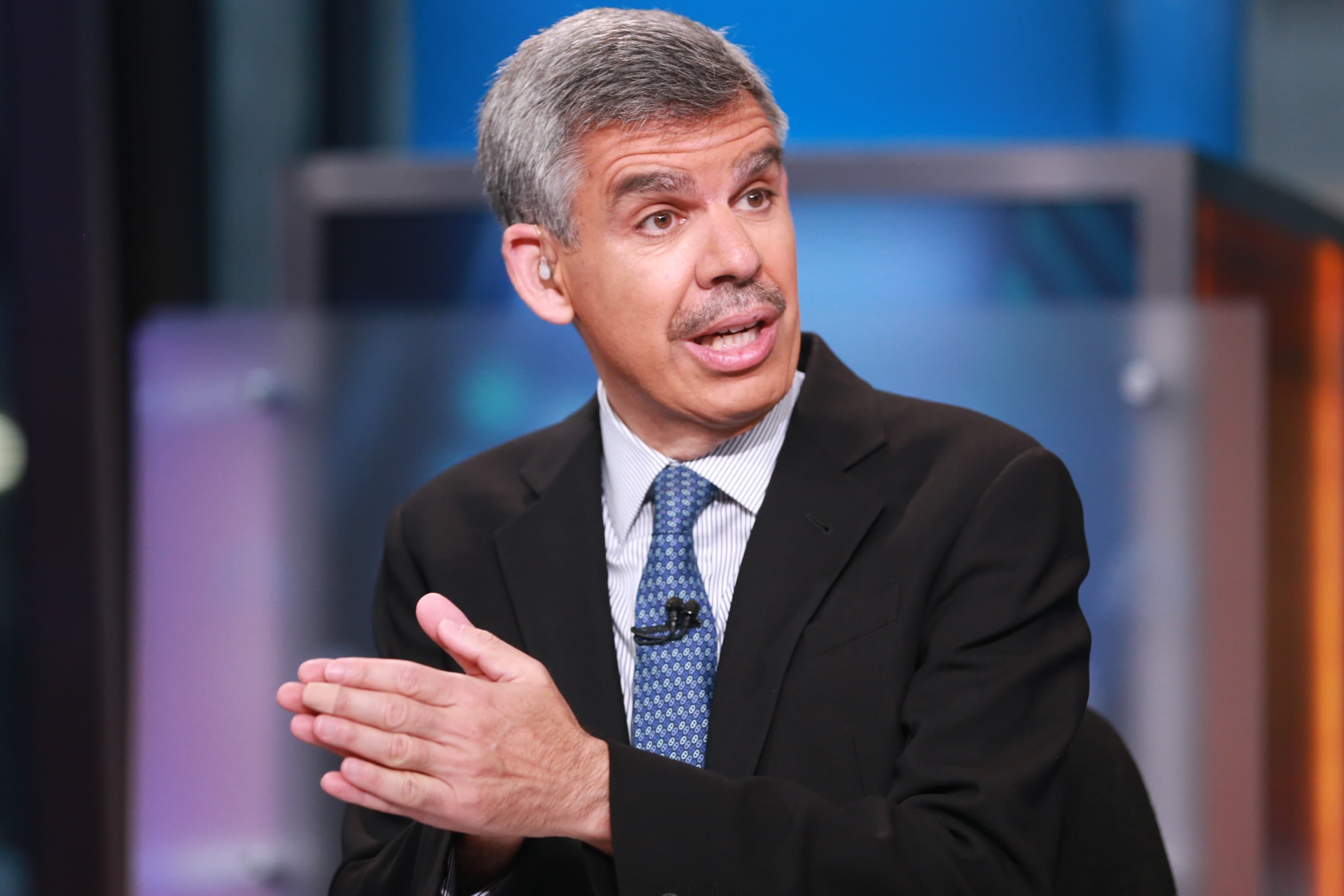
The U.S. stock market will drop as much as 30% from last month’s highs as global economies go into coronavirus-driven recessions, according to economist Mohamed El-Erian, who correctly predicted earlier in the week the selling would continue until a bear market was reached.
The chief economic advisor at Allianz said Thursday that investors should not expect a quick recovery in stocks when a bottom is finally reached.
“We’re going to come back. We’re going to turn around, but it is going to be a difficult journey,” El-Erian said on CNBC’s “Squawk Box.”
“Hell no,” he said about so-called V-shaped bounce; Wall Street talk for a quick down and up. He said the market chart would look like a “U” or an “L,” suggesting more time spent at the lows before a recovery begins.
“We are going into a global recession. We are going to see a spread of economic sudden stops,” El-Erian said. “The trouble with economic sudden stops is it’s not easy to restart an economy. You’ve got to get people to reengage. You’ve got to coordinate the restart. The economic damage is going to last.”
But El-Erian said it’s a different story for financial markets, which are “going to react much faster” than the economy.
“We are putting so much liquidity into these markets that when the green light flashes, and it will flash at some point, we are going to have such a snap back,” he said. “The financial markets are going to lead the real economy.”
El-Erian first warned on Feb. 3 that individual investors should “resist our inclination to buy the dip” as coronavirus concerns were just starting take stocks lower. He has not wavered in that advice since.
On Monday, he said the stock market could experience a “20%, 30% drop in prices” from mid-February’s record highs. He said Thursday he believes the market will drop closer to the 30% part of that range.
U.S. stock futures were pointing to about a 1,100-point slide for the Dow Jones Industrial Average at Thursday’s open after President Donald Trump’s address Wednesday night failed to ease concerns about the possible economic fallout from the coronavirus pandemic.
Ahead of Trump’s announcement of a ban on most travelers to the U.S. from Europe for the next 30 days, the Dow plunged over 1,450 points, or nearly 5.9%, closing in a bear market Wednesday afternoon.
If the indicated losses for the S&P 500 and Nasdaq were to hold by the close on Wall Street on Thursday, they would join the Dow in bear market territory, which is defined by a decline of at least 20% from recent 52-week highs.



